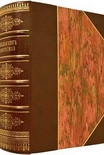Myths and Legends of China by E. Werner (free ebook reader for iphone TXT) 📗

- Author: E. Werner
Book online «Myths and Legends of China by E. Werner (free ebook reader for iphone TXT) 📗». Author E. Werner
The Money-tree
In later times, however, these Door-gods were supplanted in popular favour by two ministers of the Emperor T’ai Tsung of the T’ang dynasty, by name Ch’in Shu-pao and Hu Ching-tê. T’ai Tsung had fallen sick, and imagined that he heard demons rampaging in his bedroom. The ministers of State, on inquiring as to the nature of the malady, were informed by the physician that his Majesty’s pulse was feverish, that he seemed nervous and saw visions, and that his life was in danger.
The ministers were in great fear. The Empress summoned other physicians to a consultation, and after the sick Emperor had informed them that, though all was quiet during the daytime, he was sure he saw and heard demons during the night, Ch’in Shu-pao and Hu Ching-tê stated that they would sit up all night and watch outside his door.
Accordingly they posted themselves, fully armed, outside the palace gate all night, and the Emperor slept in peace. Next day the Emperor thanked them heartily, Page 174and from that time his sickness diminished. The two ministers, however, continued their vigils until the Emperor informed them that he would no longer impose upon their readiness to sacrifice themselves. He ordered them to paint their portraits in full martial array and paste these on the palace doors to see if that would not have the same effect. For some nights all was peace; then the same commotion was heard at the back gates of the palace. The minister Wei Chêng offered to stand guard at the back gates in the same way that his colleagues had done at the front gates. The result was that in a few days the Emperor’s health was entirely restored.
Thus it is that Wei Chêng is often associated with the other two Door-gods, sometimes with them, sometimes in place of them. Pictures of these mên shên, elaborately coloured, and renewed at the New Year, are to be seen on almost every door in China.
The Door-gods, Civil and Military
Chinese Polytheism
That the names of the gods of China are legion will be readily conceded when it is said that, besides those already described, those still to be mentioned, and many others to whom space will not permit us to refer, there are also gods, goddesses, patrons, etc., of wind, rain, snow, frost, rivers, tides, caves, trees, flowers, theatres, horses, oxen, cows, sheep, goats, dogs, pigs, scorpions, locusts, gold, tea, salt, compass, archery, bridges, lamps, gems, wells, carpenters, masons, barbers, tailors, jugglers, nets, wine, bean-curd, jade, paper-clothing, eye, ear, nose, tongue, teeth, heart, liver, throat, hands, feet, skin, architecture, rain-clothes, monkeys, lice, Punch and Judy, fire-crackers, cruelty, revenge, manure, fornication, shadows, corners, Page 175gamblers, oculists, smallpox, liver complaint, stomach-ache, measles, luck, womb, midwives, hasteners of child-birth, brigands, butchers, furnishers, centipedes, frogs, stones, beds, candle-merchants, fishermen, millers, wig-merchants, incense-merchants, spectacle-makers, cobblers, harness-makers, seedsmen, innkeepers, basket-makers, chemists, painters, perfumers, jewellers, brush-makers, dyers, fortune-tellers, strolling singers, brothels, varnishers, combs, etc., etc. There is a god of the light of the eye as well as of the eye itself, of smallpox-marks as well as of smallpox, of ‘benign’ measles as well as of measles. After reading a full list of the gods of China, those who insist that the religion of China was or is a monotheism may be disposed to revise their belief. Page 176
1 See the present writer’s China of the Chinese, chapter viii.
2 See Du Bose, pp. 282, 286, 361, 409, 410, and Journal of the North China Branch of the Royal Asiatic Society, xxxiv, 110–111.
3 Du Bose, p. 38.
4 He is sometimes represented as a reincarnation of Wên Chung; see p. 198.
5 It is necessary to reproduce the written characters concerned with these stars, namely:
6 See footnote, p. 107.
7 Religion, p. 177.
8 See Myths of the Hindus and Buddhists, by Sister Nivedita and Ananda Coomaraswamy.
9 The native accounts differ on this point. Cf. p. 16.
10 For further details concerning T’ai I see Babylonian and Oriental Record, vi, 145–150.
11 Cf. Chapter I.
Chapter V
Myths of the Stars
Astrological Superstitions
According to Chinese ideas, the sun, moon, and planets influence sublunary events, especially the life and death of human beings, and changes in their colour menace approaching calamities. Alterations in the appearance of the sun announce misfortunes to the State or its head, as revolts, famines, or the death of the emperor; when the moon waxes red, or turns pale, men should be in awe of the unlucky times thus fore-omened.
The sun is symbolized by the figure of a raven in a circle, and the moon by a hare on its hind-legs pounding rice in a mortar, or by a three-legged toad. The last refers to the legend of Ch’ang Ô, detailed later. The moon is a special object of worship in autumn, and moon-cakes dedicated to it are sold at this season. All the stars are ranged into constellations, and an emperor is installed over them, who resides at the North Pole; five monarchs also live in the five stars in Leo, where is a palace called Wu Ti Tso, or ‘Throne of the Five Emperors.’





Comments (0)